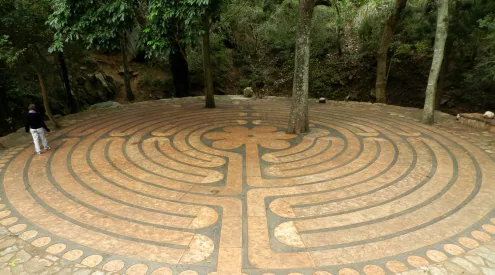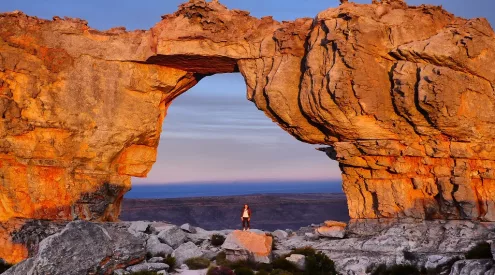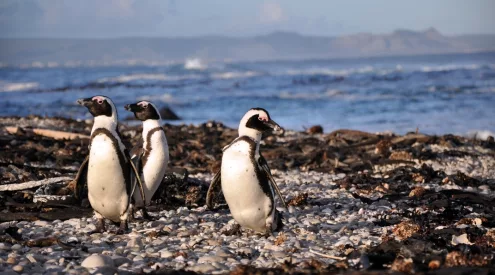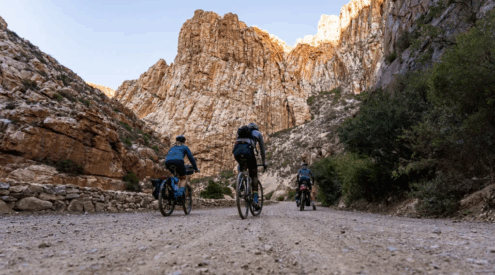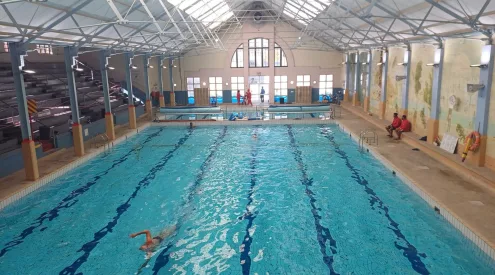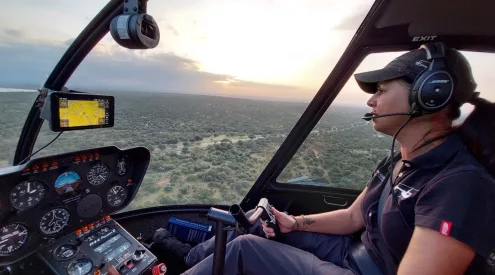Giant seabirds, 50-tonne whales, endless pods of dolphins, the ocean’s rarest turtle and largest shark: Tofo’s marine world could blow you out of the water, says Aaron Gekoski.
On the surface, there’s nothing particularly out of the ordinary about Tofo. If you’re after stilted bungalows overlooking a gin-clear ocean, it’s Mozambique’s Bazaruto Archipelago you need to head for. However, dive a little deeper and this stretch of coastline is amongst Africa’s finest.
Due to a combination of luck, biology and favourable ocean conditions, marine behemoths simply love it here. While sipping the local rum, Tipo Tinto, from under a swaying palm tree, Tofo’s natives whisper of their own even bigger, Big 5.
What’s more, they say, you don’t need to break into a sweat, or a bank, in order to find them. You don’t need to stay in an expensive game lodge or shoehorn yourself into a 4×4. And you definitely don’t need to queue behind carloads of tourists, as they photograph a lion scratching itself.
Because lions, they claim, are pussycats compared to humpback whales the size of buses. A whale shark gives them the horn over a rhino. And they’ll take a soaring manta ray over a roaring leopard any day.
In Tofo, it’s just a handful of guests and a small boat separating you from some of the most impressive animals to have ever graced our planet.
1. Manta ray

Manta ray feeding at surface. Image credit: Aaron Gekoski
Although their numbers have depleted over recent years, Tofo remains one of the best manta-spotting destinations in the world. In fact, in what was the marine equivalent of discovering a new type of elephant, a second species, the giant manta, was identified in these waters by scientist Dr. Andrea Marshall. The largest giant manta ever recorded measured over 7 metres.
Mantas have been likened to marine UFO’s, sea birds, or even giant squashed cows. Whatever your opinion, swimming with one of these elegant rays is a diving highlight. Whilst it’s possible to encounter them on snorkeling trips (known as Ocean Safaris), visitors may have better, longer interactions on scuba. At Tofo’s most famous dive site, Manta Reef, obliging fish nibble parasites off the rays at a ‘cleaning station’.
Difficulty rating: Medium. Mantas are mainly encountered on Tofo’s deep dive sites.
2. Whale shark

Whale shark. Image credit Aaron Gekoski
Whale sharks, unlike manta rays, are not renowned for their intelligence. Yet they compensate for their doziness by being both very large and very pretty. However, like mantas, Tofo Beach is one of the only places to encounter congregations throughout the year.
Thankfully these huge sharks pose no threat to humans. They are in fact zooplankton-filtering softies, that feed only on microscopic chow, which they sieve through giant gills in giant quantities. A fully-grown male can eat up to 400kgs of food every two to three days.
The best way of encountering a whale shark is on Ocean Safari. It may be tempting to reach out and touch one of these jolly blue giants, but remember to always keep a respectful distance.
Difficulty rating: Medium. Keeping up with a whale shark requires a level of fitness. The ability to free dive is a bonus.
3. Humpback whale

Humpback whale. Image credit: Aaron Gekoski
During June to October, en route to Antarctic feeding grounds, humpback whales take a convenient pause in Tofo’s waters to nurse newborns. Doting mothers and breaching males can be seen at close quarters on Ocean Safari.
During humpback season, the whale’s wails can also be heard underwater. Their distinctive melodies are generated by lungs the size of small cars. A lucky few may even see humpbacks on a dive, though this only happens a handful of times each season.
If all this aquatic activity sounds a bit strenuous, then grab a set of binoculars and pull up a deckchair at one of Tofo’s numerous beachside hangouts. Watching flip-flopping humpbacks from the shore – as the sun ebbs into the horizon – isn’t a bad substitute.
Difficulty rating: Easy.
4. Turtles

Turtle. Image credit Aaron Gekoski
Tofo is one of the only places on Earth where you can find all 6 species of marine turtle. Although loggerheads and greens are the most common, it’s also possible to see leatherbacks. This critically endangered species is the largest marine turtle and can grow to over 3-meters in length. They have also been known to travel 5000km between nesting sites and foraging grounds.
In Tofo, turtles are often seen bobbing around on the surface whilst on Ocean Safari. But as snorkelers enter the water to take a closer look, they may head for the seabed. Turtles seem more tolerant of divers. Despite their toothless scowls, etched on comically grumpy faces, they will continue munching jellyfish and crunching coral in plain view of grateful onlookers.
Difficulty rating: Easy
5. Dolphins

Dolphins. Image credit: Aaron Geoleski
Apart from the Portuguese, Tofo’s most frequent visitors are dolphins, which compete with mantas for title of the ocean’s biggest brain. To prevent them from suffocating, dolphins have even developed a unique way of sleeping. These smart cetaceans can ‘switch’ off half of their brain at a time, allowing them some much needed shut-eye after all the fun and games. Shut eye (singular), as they nap with the other one open.
In Tofo, dolphins can be encountered on a regular basis. With muscular physiques, they power through water close to shore. How inquisitive they are generally depends on the species. Here, the humpback dolphins are notoriously skittish, whilst the bottlenose dolphins may treat spectators to shows of acrobatics.
Difficulty rating: Easy.
Dive with?
Peri Peri Diving: [email protected]
Tofo Scuba: [email protected]
Stay at?

View from Casa Naroo. Image credit: Aaron Ge
Casa Naroo is a 4 double bedroom stylish house (decked out in marine photographs) and geared towards divers. The views are rather special, too. [email protected]

